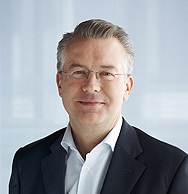Japan was a standout for Roche ($RHBBY) in 2015, but a combination of price cuts for cancer therapy Avastin (bevacizumab) there and lower Tamiflu sales will show up in early 2016.
 |
| Roche Pharma COO Daniel O'Day |
Daniel O'Day, chief operating officer of the pharmaceuticals division, told analysts on the Jan. 28 earnings call that for the company overall, Japan did well "really across the board both immunology and oncology franchises. … A really good launch of our ALK inhibitor Alecensa (alectinib) in Japan, a frontline label, but that contributed really nicely also to the results there."
However, O'Day cautioned that like the U.S. market, Japan has not seen strong seasonal Tamiflu demand, which contrasted sharply to the previous year, adding that though oncology growth is strong in the country, Avastin in particular will take a hit.
"Avastin particularly will receive a price decrease in the Japan market this year in quarter two as well, and Japan accounts for around 10% of our overall Avastin sales," O'Day said.
Reimbursement in Japan sees a sort of double-whammy this year with price cuts for widely prescribed drugs by Japan's Central Social Insurance Medical Council, known as Chuikyo. Reports suggest some drug prices could be cut in half.
On top of that, the every-other-year price cut exercise in April may aim for savings of nearly $1.5 billion.
But he noted that Alecensa is expected to stand out in Japan this year.
"We are now up in Japan because of the CNS effect on this and the ability to bring this into earlier line therapies already in Japan up to around the 60% to 65% market share in Japan from Chugai," he said.
"They have a broad label, it is first line, it's not just in second line and I think it shows the effect of what you see here … and even in recalcitrant patients, we're getting very, very good response rates for positive lung cancer patients, which is extremely exciting for such a devastating disease."
Overall, O'Day and CEO Severin Schwan said international growth rose 7% in constant currency, with access in key markets picking up in the second half.
"So our ability to create access programs in many of our international markets is gaining speed," O'Day said. "It is doing very well in China, very well in Brazil, and other markets, and you can see that growth. And … the lung cancer indication in China should be important for us."
Roche has worked with insurers and other partners in China by providing data and other support to extend coverage for cancer medicines.
But like Abbott Laboratories ($ABT) reported, oil producer Venezuela is struggling with a sharp fall in crude prices and demand has struggled economically with a rapidly falling currency.
 |
| Roche CFO Alan Hippe |
Alan Hippe, chief financial officer and chief information technology officer, said the company has moved to mark losses in Venezuela and Argentina, suffering its own woes on currency, and will stick with those markets.
"For Venezuela, minus CHF235 million, for Argentina a minus CHF89 million," Hippe told the analysts on the charges applied for the year, adding that the hit would hopefully be a one-time item.
"Don't get me wrong, I think these are very sustainable businesses for us and very profitable businesses over the years. I think over the years that makes a lot of sense, but I think that's really a one-time hit that we have taken. And then when I look into 2016 relatively comfortable, and I think we have taken a rather conservative approach here."
- here's the release